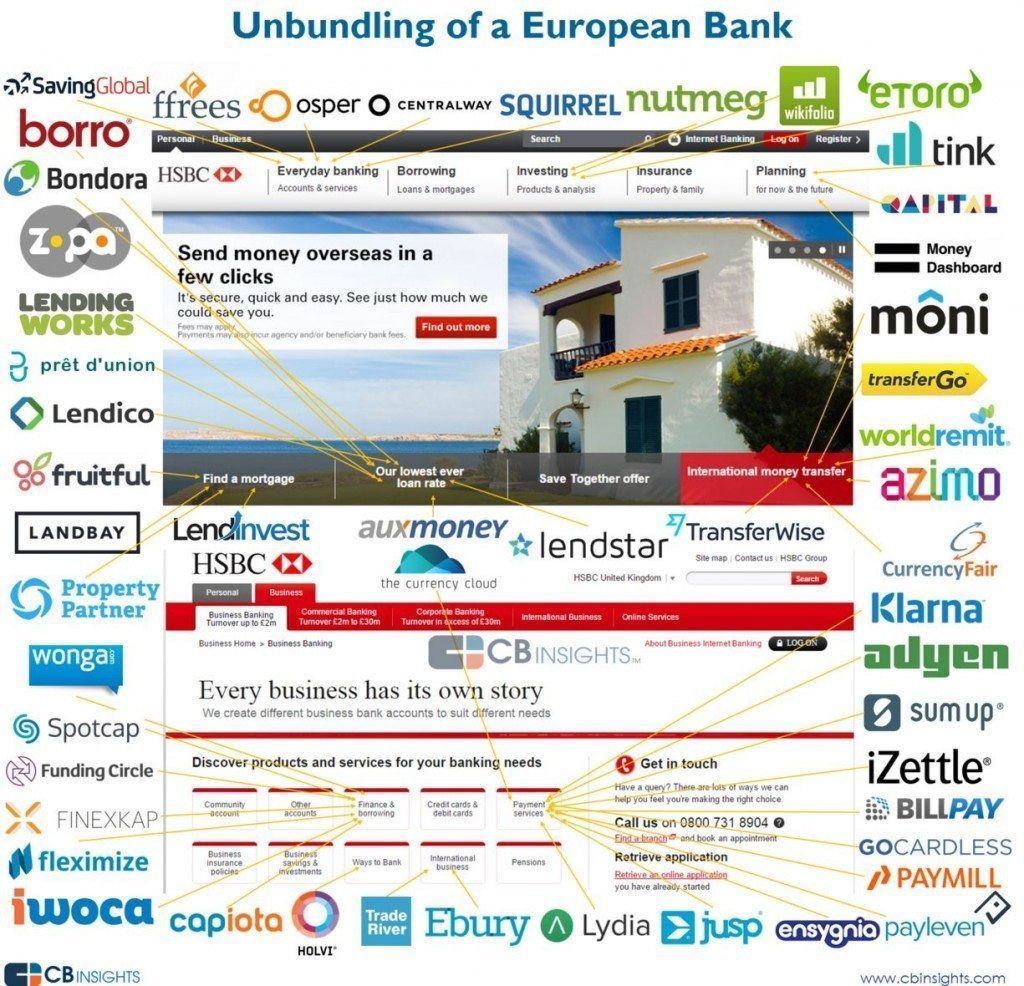
I’ve been presenting the idea for a while now that banks are not being disrupted or unbundled, as so many claim.
It’s a nice idea but completely misunderstood. The disruption idea assumes that banks will let it happen, are not awake, will not respond, can’t respond, don’t care and couldn’t be bothered. The unbundling idea assumes that you can break down banking into multiple components and offer them discretely as individual pieces. Both ideas are wrong.
Banks are responding to the disruptive movement of technologies by creating their own component-based bank based upon apps and APIs; they are responding by investing in Fintech start-ups and nurturing the community to work with them through accelerators and hackathons; they are rebuilding their own services and engaging rapidly with the leaders in shared ledger blockchain services to reimagine banking; and more.
Banks are responding to the unbundling challenge by rebundling Fintech. This is important as the unbundling idea assumes that customers who are frightened of money will be happy to deal with an unknown Fintech start-up for A; a different unknown start-up for B; and another for C. In fact, if you look at the range of financial products the average customer owns – deposit account, car loan, mortgage, credit card, savings, investments, pensions etc. – the idea that they will have each one invested in new and unknown names doesn’t necessarily wash. Some will, sure. But most won’t or not for a long time at least and, during that time, banks are adapting and changing thanks to absorbing the disruptive movements mentioned above.
What all this leads to is Fintech 2.0, which several banks are now talking about, Deutsche Bank and Santander in particular. Last June, Santander released their white paper Fintech 2.0: Rebooting financial services. This paper was presented as “a call to action to banks, financial institutions and financial technology (Fintech) businesses to work together to undertake a fundamental ‘reboot’ of the core processes, systems and infrastructure of the banking industry.”
Deutsche Bank are releasing a paper about Fintech 2.0 with the same theme, with Deutsche Bank Managing Director Rhomaios Ram saying:
“I’ve discussed the possibility of partnerships with tens of different Fintech start-ups, and they all seem very keen to partner with us. It’s great that they see the benefits that we can bring to a potential partnership, including a client base, security and regulatory certainty …. the biggest hurdles to adoption of new technologies and partnerships are regulatory and legal requirements in different jurisdictions around the world.”
These comments and views resonate with my own, and can best be summed up as:
Fintech is changing bank structures and banks are using that change to reimagine the bank
So much for unbundling and disruption.
Chris M Skinner
Chris Skinner is best known as an independent commentator on the financial markets through his blog, TheFinanser.com, as author of the bestselling book Digital Bank, and Chair of the European networking forum the Financial Services Club. He has been voted one of the most influential people in banking by The Financial Brand (as well as one of the best blogs), a FinTech Titan (Next Bank), one of the Fintech Leaders you need to follow (City AM, Deluxe and Jax Finance), as well as one of the Top 40 most influential people in financial technology by the Wall Street Journal's Financial News. To learn more click here...


